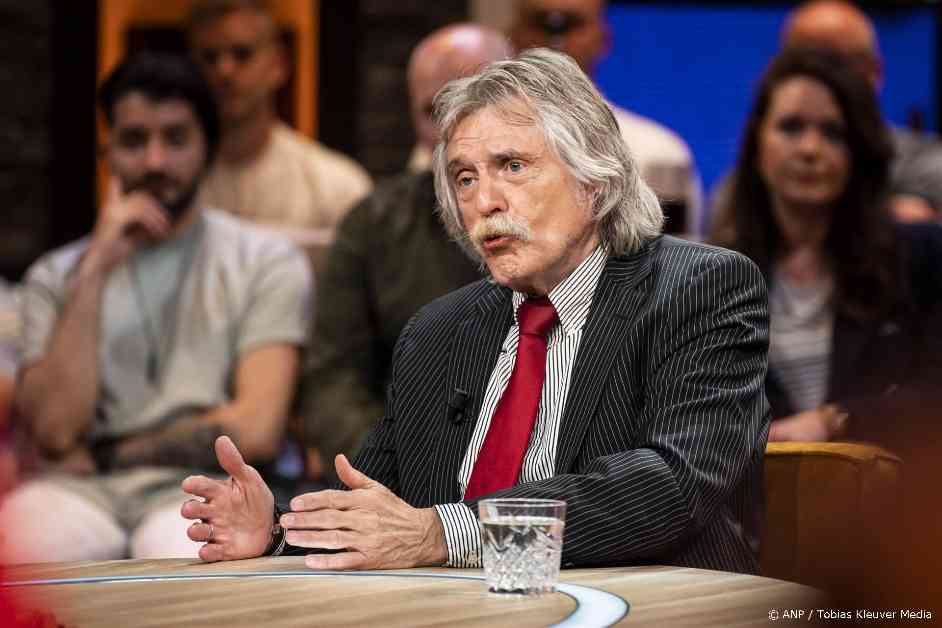Johan Derksen is known for his strong stories and last night on Vandaag Inside Oranje was no different. He shared an anecdote about the 1994 World Cup, in which sports journalists Lex Muller and Leo Driessen played a major role.
Muller didn’t just play a major role, he was actually arrested for what happened back then.
Johan Derksen on Vandaag Inside Oranje: ‘FBI got involved’
“Were you there in 1994 when that happened with Lex Muller?” presenter Wilfred Genee asked Derksen. “I wasn’t on that plane, but I was at that World Cup,” he remembers well. “The Dutch national team was furious, but Lex said it out of mischief.”
According to the mustached analyst, Muller had a lot of suitcases with him and there was all sorts of hassle with a stewardess. “At one point, he left his suitcases and said: ‘There’s a bomb in there.'” Now, such a remark is not smart anywhere in the world, but according to Derksen, they took it very seriously in the United States, where the World Cup was held at the time.
“He really said it as a joke, but in America, that’s not a joke. The stewardess passed that remark on to the pilot, who called the FBI.” The Vandaag Inside Oranje studio is laughing, but at that time, it wasn’t so funny. It actually lasted for hours and caused a lot of delay for the Dutch national team. Muller was eventually arrested and when the Netherlands lost in the quarterfinals, many people looked at him as the culprit.
But during that same World Cup, something else happened that caused the team to be delayed. Derksen said, “Leo Driessen (sports reporter) had gotten drunk under the table on the plane and became ill. That’s when we had to make an emergency landing.” According to René van der Gijp, that’s exactly why Dennis Bergkamp is now afraid to fly. “Bergkamp became afraid of flying because Leo Driessen had drunk too much,” Genee also mentioned.
Here you can watch the full anecdote from Johan Derksen:
Students at this school must trade in their smartphones for old Nokias
Will the Dutch national team make it to the Euro final? Confidence is higher than ever

